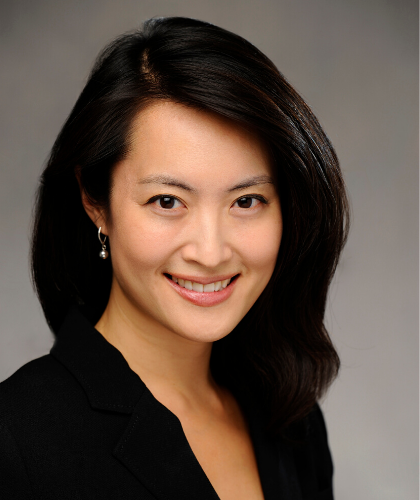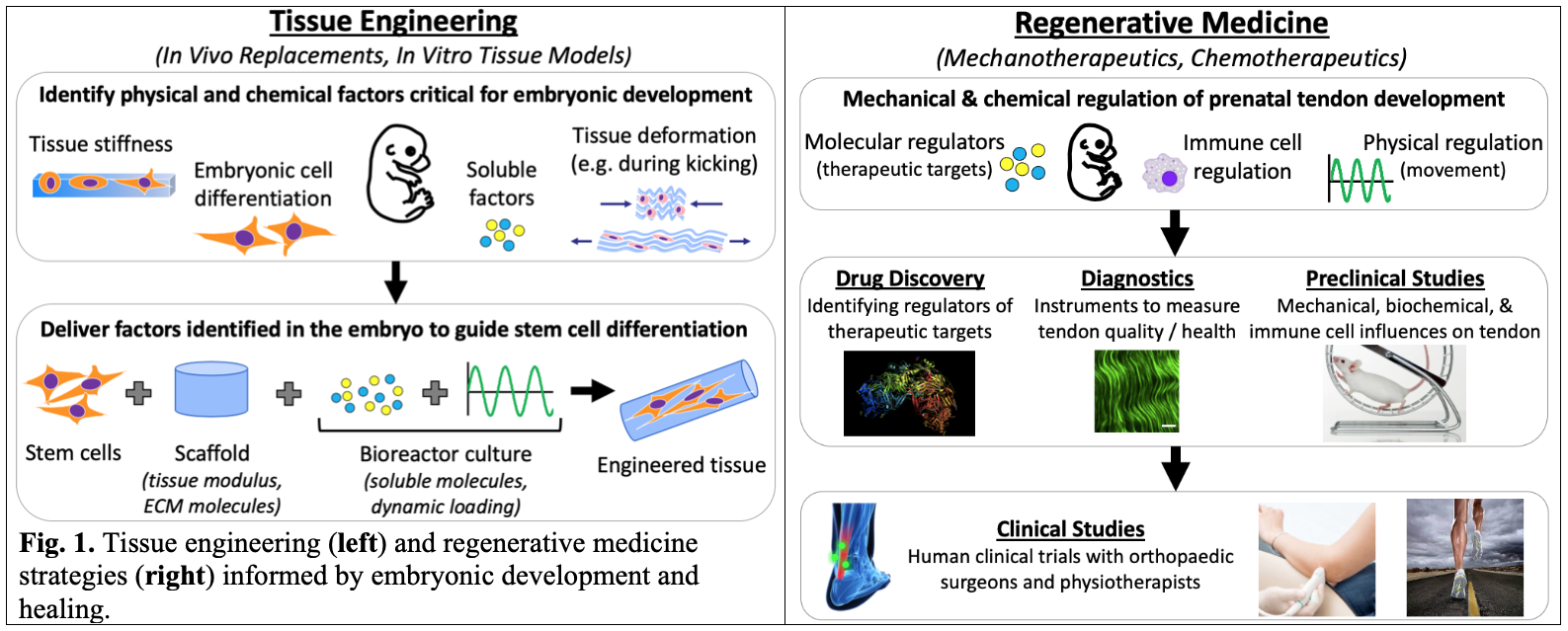
Kuo, Catherine K.
Associate Professor
Fischell Fellow
Department of Orthopaedics
Robert E. Fischell Institute for Biomedical Devices
EDUCATION
B.S.E., Materials Science and Engineering, University of Michigan
Ph.D., Biomaterials, Macromolecular Science and Engineering, University of Michigan
Postdoctoral Fellowship, Cartilage Biology and Orthopaedics, National Institute of Arthritis and Skin and Musculoskeletal Diseases (NIAMS), National Institutes of Health (NIH)
PROFESSIONAL ROLES
President-Elect, TERMIS-AM, 2024-Present
Editor-in-Chief, Journal of Tissue Engineering and Regenerative Medicine, Wiley Publishing, 2022-Present
Associate Editor, Science Advances, AAAS, 2024-Present
Editorial Board, Tissue Engineering Part A, Part B: Reviews, and Part C: Methods, January 2020-Present
Publication Advisory Board, Journal of Orthopaedic Research, 2020-2022
Editorial Board, IEEE Open Access Journal of Engineering in Medicine and Biology (OJEMB), 2019-Present
Editorial Board, Biomedical Materials, 2018-2021
Editorial Review Board, Journal of Orthopaedic Research, 2014-2019
International Advisory Board, International Symposium on Ligaments and Tendons (ISL&T), 2010-Present
HONORS & AWARDS
- Tissue Engineering and Regenerative Medicine International Society (TERMIS)-Americas Chapter Education, Training, and Outreach Award (2024)
- Poole & Kent Teaching Award for Senior Faculty in the Clark School of Engineering (2024)
- BIOE Instructional Impact Award, Fischell Department of Bioengineering (2022)
- BIOE Instructional Impact Award, Fischell Department of Bioengineering (2021)
- Inducted into the American Institute for Medical and Biological Engineering (AIMBE) (2019)
- Inducted into the Order of the Engineer (2018)
- Vail Scientific Summit Research Award (2017)
- Innovation in Research Award, ORS-GoLife in Orthopaedics Conference in Gothenburg, Sweden (2015)
- Stem Cell Research and Therapy Emerging Investigator (2015)
- National Academy of Engineering (NAE) Recognition as Outstanding U.S. Engineer Under Age of 45 at the “German-American Frontiers of Engineering Symposium” (2013)
- NSF CAREER Award (Biomechanics and Mechanobiology) (2013)
- Travel Award, 3rd Symposium on Frontiers in Biomechanics: Mechanics of Development (2011)
- March of Dimes Basil O’Connor Starter Scholar Research Award (2011)
- Appointment to International Advisory Board of International Society on Ligaments and Tendons (ISL&T) (2010)
- Featured Scientist, NIH Women in Biomedical Careers – Women Scientists in Action (2010)
- Keystone Symposia Scholarship, Tissue Engineering and Development Biology, Snowbird, UT (2007)
- Travel Grant Award, International Workshop on the Growth Plate (2006)
- Poster Award, NIH / NIAMS Intramural Retreat (2006)
- Best Research Fellow Paper, Sixth International Symposium on Ligaments and Tendons (ISL&T) (2006)
- Best Research Award, Society for Physical Regulation in Biology and Medicine (SPRBM) 24th Scientific Conference (2006)
- Best Research Fellow Paper, Fifth International Symposium on Ligaments and Tendons (ISL&T) (2005)
- Outstanding Scientific Presentation Award, NIAMS Intramural Retreat 2004 (2004)
- NIH Intramural Research Training Award Postdoctoral Fellowship (2002–2007)
- Dominic D. Dziewiatkowski Award for Excellence in Research, University of Michigan (2001)
- University of Michigan Macromolecular Science & Engineering Center Rackham Block Grant (2000)
- Best Engineering Presentation Award, UM Macromolecular Science & Engineering 24th Annual Symposium (2000)
- UM Oral Health Sciences PhD Program Block Grant (1999)
- NIH Biomaterials Training Grant Fellowship (1997–2002)
For archived news about the lab (prior to our move to UMD), please click here.
Research Areas
- Mechanobiology
- Therapeutic Development
- Regenerative medicine
- Biomaterials
- Stem cells
- Orthopaedics
- Tissue engineering
The Kuo Lab is dedicated to developing tissue engineering and therapeutic solutions for adult tendon injuries and diseases, as well as tendon-related birth defects, uniquely informed by mechanisms of embryonic tendondevelopment and scarless healing. We are discovering mechanisms of embryonic tendon development and regeneration to identify putative candidates for adult tendon therapeutic development. We are also studying the mechanobiology of embryonic tendon development with the goal of developing in utero interventions to prevent and treat tendon-associated musculoskeletal birth deformities that are due to abnormal fetal biomechanics. We have been pioneering novel bioengineering tools and approaches with which we are investigating how physicochemical cues regulate functional tendon formation from early to late embryonic/fetal development. Our research is identifying novel regulators of tendon extracellular matrix and mechanical property elaboration and developing therapeutic interventions for adult and fetal tendons based on these regulators.
